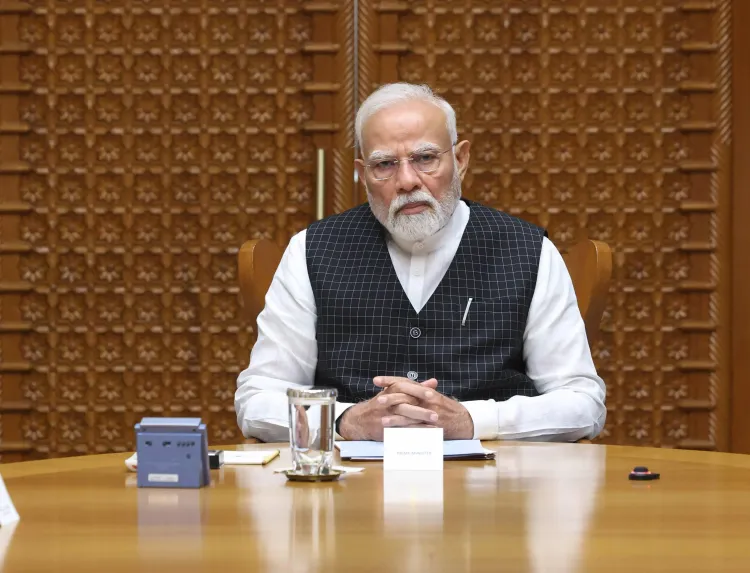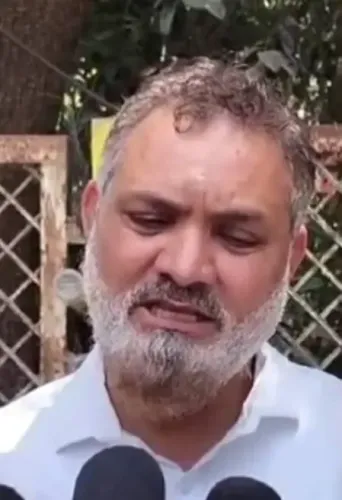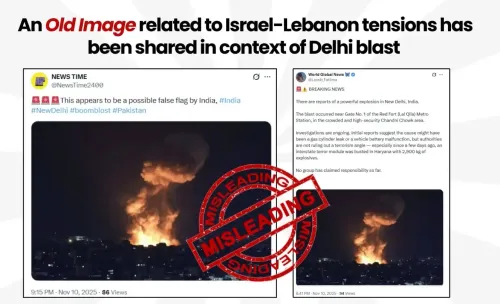PM Modi Chairs CCS in Historic Retaliation: India Responds to Pakistan Following Pahalgam Terror Incident

Synopsis
Key Takeaways
- Indus Waters Treaty suspended.
- Closure of Attari Integrated Check Post announced.
- Cancellation of SAARC Visa Exemption Scheme for Pakistani nationals.
- Persona Non Grata declaration for certain Pakistani diplomats.
- Reduction of diplomatic staff in both nations.
New Delhi, April 23 (NationPress) In a firm response to the devastating terror incident that occurred on April 22 in Pahalgam, Jammu and Kashmir, India has implemented a range of strong diplomatic actions to hold Pakistan accountable for its involvement in cross-border terrorism. The Cabinet Committee on Security (CCS), led by Prime Minister Narendra Modi, convened on Wednesday evening to assess the implications of the attack, which resulted in the loss of 25 Indian lives and one Nepali citizen, with numerous others injured.
The CCS expressed profound condemnation of the assault and extended its heartfelt condolences to the families of the victims, wishing for the rapid recovery of the injured. The assault, which targeted tourists in a well-known area, was attributed to terror groups supported by Pakistan, according to sources.
India has also garnered substantial support from governments globally, denouncing the attack and reaffirming their commitment to a zero tolerance policy towards terrorism.
The meeting highlighted that the attack transpired amidst successful elections in Jammu and Kashmir, along with the region's ongoing advancements in economic development and stability. India believes these accomplishments are perceived as a threat by terrorist factions aiming to disrupt the region.
Recognizing the gravity of this incident and its cross-border connections, the CCS has enacted the following unprecedented measures:
Indus Waters Treaty Suspended – In a major decision, India has suspended the Indus Waters Treaty of 1960 immediately. This historic action effectively halts decades of collaboration on water-sharing between India and Pakistan. This decision will remain in effect until Pakistan takes credible and irreversible measures to renounce its support for cross-border terrorism.
Closure of Attari Integrated Check Post – In a direct reaction to the terror attack, India has declared the immediate closure of the Integrated Check Post (ICP) at Attari, a vital border crossing between the two nations. Indian authorities have permitted Pakistani citizens with valid travel documents until May 1, 2025, to exit Pakistan through this route. Following this deadline, all land travel between India and Pakistan will be completely halted.
Cancellation of SAARC Visa Exemption Scheme for Pakistani Nationals – In another decisive action, India has resolved that Pakistani nationals will no longer be allowed entry into India under the SAARC Visa Exemption Scheme (SVES). Any SVES visas previously granted to Pakistani nationals have been annulled, and those currently in India under this scheme have been given 48 hours to depart the country.
Persona Non Grata Declaration for Pakistani Diplomats – In a pointed diplomatic maneuver, India has declared Pakistan’s Defence, Military, Naval, and Air Advisors within the Pakistani High Commission in New Delhi as Persona Non Grata. These officials have been instructed to leave India within a week.
India has also announced the withdrawal of its Defence, Navy, and Air Advisors from the Indian High Commission in Islamabad, with all such positions now rendered void. Additionally, five support staff members for these service advisors will also be withdrawn from both High Commissions.
Reduction in Diplomatic Staff – In a further diplomatic escalation, India has decided to decrease the overall personnel of the Indian High Commission in Islamabad and the Pakistani High Commission in New Delhi. The two embassies will operate with a staff strength reduced to 30, down from the current 55. This reduction is set to be implemented by May 1, 2025.
The CCS also reviewed the overall security landscape and directed all Indian forces to uphold the highest level of vigilance. India has pledged to ensure that those responsible for the Pahalgam attack face justice, and that their sponsors will be held accountable. In alignment with its steadfast approach to combating terrorism, India reiterated its commitment to pursuing those behind terror attacks, referencing recent high-profile extraditions such as that of Tahawwur Rana.
India's diplomatic measures signal a transition toward the complete isolation of Pakistan until it ceases its support for terrorism. These actions reflect the government's determination to counter Pakistan’s ongoing role in instigating violence on Indian territory and to convey a clear message to the global community that terrorism will not be tolerated.









